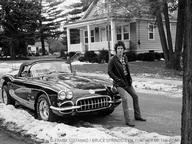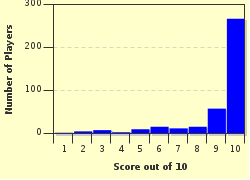Quiz Answer Key and Fun Facts
1. Glendathecat does not claim to be Bruce Springsteen but, for the sake of convenience, all questions in this quiz will be expressed in the first person.
I come from down in the valley, where they bring you up to do what?
2. Me and Mary, we met in high school when she was how old?
3. Mary and I would go down to the river, down to where the fields were what?
4. What happened to dramatically change things?
5. Which of the following did I receive on my nineteenth birthday?
6. When I got a job in the construction industry, which company was I working for?
7. How does Mary behave these days?
8. I have plenty of memories of going down to the river. What do these memories do to me?
9. Tell me, is a dream a lie if it don't come true or is it ____________?
10. What has happened to the river by the end of the song?
Source: Author
glendathecat
This quiz was reviewed by FunTrivia editor
kyleisalive before going online.
Any errors found in FunTrivia content are routinely corrected through our feedback system.

